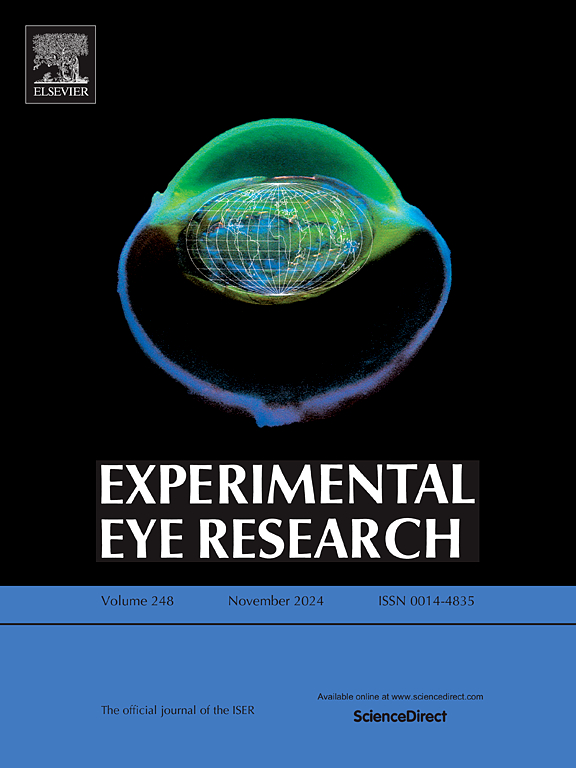Diabetic retinopathy features in lund MetS rats
IF 3
2区 医学
Q1 OPHTHALMOLOGY
引用次数: 0
Abstract
The Lund MetS rat (BBDR.cg-Leprdb/db.cp/LundRj) is a novel animal model that has a congenic leptin receptor deficiency (LepR−/−) and males exhibit a variety of metabolic abnormalities mimicking the human metabolic syndrome, including hyperglycemia, dyslipidemia, severe obesity, and a type 2 diabetes-like condition from 14 weeks of age. However, whether Lund MetS rats (LM rats) develop diabetic retinopathy is still unknown. The purpose is to investigate the features of diabetic retinopathy in this model. In this study, male LM rats aged 15 and 30 weeks were analyzed for pathological retinal changes, including vasculopathy, inflammation, reactive gliosis, oxidative stress, and neurodegeneration features on the retinas by histological, immunohistochemical, and gene and protein expression analysis. Compared with the non-diabetic LM rats, diabetic LM rats, mainly at 30 weeks of age, had a decrease in retinal thickness and loss of retinal ganglion cells and photoreceptors, indicating retinal neurodegeneration. They also presented an increase in VEGF-A expression, Endra, Icam-1, Vcam-1, and Endrb vascular genes, and albumin suggesting neurovascular unit dysfunction. Furthermore, retinas presented reactive gliosis and infiltration of microglia, TNF-α-positive vessels and expressed elevated levels of inflammatory genes Tnf-α, IL-18 and IL-6, and oxidative stress markers Sod2 and 8-hydroxy-2-deoxyguanosine (8-OHdG). Our results suggest that diabetic LM rats reproduce the early neurodegenerative and altered neuro-vascular features that also occur in the human diabetic eye.
求助全文
约1分钟内获得全文
求助全文
来源期刊

Experimental eye research
医学-眼科学
CiteScore
6.80
自引率
5.90%
发文量
323
审稿时长
66 days
期刊介绍:
The primary goal of Experimental Eye Research is to publish original research papers on all aspects of experimental biology of the eye and ocular tissues that seek to define the mechanisms of normal function and/or disease. Studies of ocular tissues that encompass the disciplines of cell biology, developmental biology, genetics, molecular biology, physiology, biochemistry, biophysics, immunology or microbiology are most welcomed. Manuscripts that are purely clinical or in a surgical area of ophthalmology are not appropriate for submission to Experimental Eye Research and if received will be returned without review.
 求助内容:
求助内容: 应助结果提醒方式:
应助结果提醒方式:


